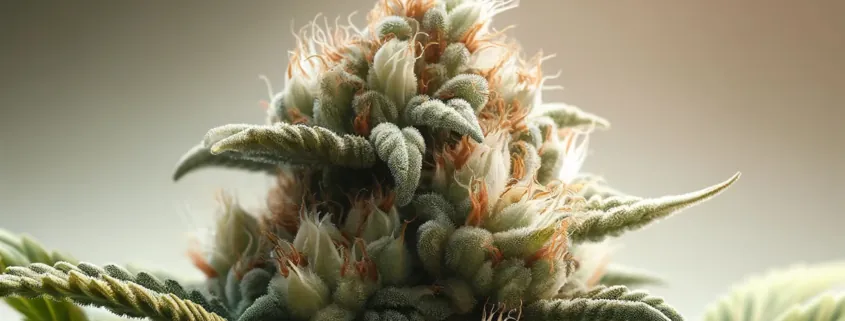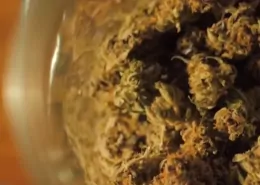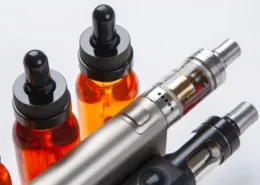What is Delta-9 THC?: Effects, Benefits, Risks, and More
Delta-9 is a chemical compound found in both cannabis and hemp plants, and it’s one of the dozens of cannabinoids that can affect the human body in various ways. As the most abundant form of tetrahydrocannabinol (THC), delta-9 is responsible for the intoxicating effects commonly associated with cannabis use. In this comprehensive guide, we’ll explore the science behind delta-9, its potential benefits and risks, and important considerations for those interested in using delta-9 products.
The Chemistry of Delta-9
Delta-9 has the chemical formula C₂₁H₃₀O₂, which is identical to that of delta-8, another form of THC. The key difference between these two compounds lies in the position of one of the carbon-carbon double bonds. Most research on THC has focused specifically on delta-9, making it the most well-studied and well-known form of THC 1.
How Delta-9 Affects the Body
When consumed, delta-9 THC interacts with the body’s endocannabinoid system, triggering the release of dopamine, a neurotransmitter associated with pleasure and reward 2. This interaction is responsible for the intoxicating effects of cannabis, which may include:
- Altered perception of time and events
- Giddiness
- Increased focus
- Relaxation
However, delta-9 can also cause side effects, such as:
- Anxiety
- Difficulty thinking and speaking
- Dry mouth
- Increased appetite
- Memory loss
- Rapid heart rate
- Red eyes
- Slowed reaction times
Potential Medical Benefits of Delta-9
Despite its intoxicating effects, delta-9 THC has been associated with a wide range of potential medical benefits. According to a 2021 research review, THC may be effective in treating 3:
- Anxiety
- Glaucoma
- Insomnia
- Low appetite
- Muscle spasticity
- Obstructive sleep apnea
- Nausea
- Pain
The FDA has even approved medications containing synthetic forms of delta-9 THC, such as dronabinol (Marinol), to stimulate appetite in individuals with HIV, cancer patients undergoing chemotherapy, and people with anorexia 4.
Risks and Side Effects of Delta-9 Use
While most people can tolerate delta-9 THC well, it’s essential to be aware of the potential risks and side effects associated with its use. Between 9% and 30% of cannabis users may develop cannabis use disorder, and withdrawal symptoms can occur when regular use is discontinued 6.
Smoking cannabis can also have negative impacts on respiratory health, with some studies suggesting an increased risk of bronchitis and chronic obstructive pulmonary disease (COPD) 7. Additionally, early cannabis use may affect brain development, particularly in adolescents, though more research is needed to determine the long-term effects 8.
It’s important to note that naturally-occurring delta-9 THC is distinct from the synthetic product known as delta-9 THC-O acetate, which is sold as a vaping product or used in gummies. The National Poison Control Center has issued a statement urging caution when manufacturing or using delta-9 THC acetate due to limited research on its strength and risks 9.
Legality and Selecting Delta-9 Products
The legal status of delta-9 THC varies by state, with some allowing its use for medical purposes only, while others have legalized it for recreational use as well 10. When purchasing delta-9 products, it’s crucial to choose reputable companies that provide third-party lab testing results to ensure product quality and safety.
For those new to cannabis use, starting with a low dosage (1-2 milligrams) and gradually increasing as needed is recommended. Individuals with lung conditions or those who experience irritation from smoking may prefer THC-infused edibles or tinctures, though it’s important to keep in mind that edibles have a slower onset of effects compared to smoked cannabis.
Frequently Asked Questions
Delta-9 is a form of THC and is not the same as CBD. While delta-9 is intoxicating, CBD is not.
Delta-9 and delta-8 have the same chemical formula (C₂₁H₃₀O₂) but differ in the location of one carbon-carbon double bond. Both compounds are intoxicating, but delta-8 appears to be less potent than delta-9, with some users reporting fewer side effects.
Delta-9 can be consumed safely, but it does carry potential risks and side effects, including anxiety, dry mouth, increased appetite and heart rate, memory loss, red eyes, and slowed reaction times. Rare short-term effects can include hallucinations, paranoia, panic attacks, nausea, and vomiting 11.
The legality of delta-9 THC products varies by state in the U.S. Some states have legalized cannabis for medical purposes, while others have legalized it for recreational use as well 12.
Yes, delta-9 is the most abundant form of THC in cannabis plants and is responsible for the intoxicating effects associated with cannabis use.
Conclusion
Delta-9 THC, the most common and well-studied form of THC, is an intoxicating chemical compound found in cannabis and hemp plants. While it has been associated with potential medical benefits, such as treating anxiety, pain, and low appetite, it also carries risks and side effects that users should be aware of.
When considering the use of delta-9 products, it’s essential to understand the legal status in your state, purchase from reputable vendors, and start with low doses to gauge individual tolerance. As with any substance, caution and responsible use are key to minimizing potential risks and maximizing potential benefits.
References
- Chemistry, Metabolism, and Toxicology of Cannabis: Clinical Implications (Iranian Journal of Psychiatry) ↩
- The Endocannabinoid System and the Brain (Pharmacological Reviews) ↩
- Therapeutic Potential of Cannabinoids in Clinical Practice (Medical Cannabis and Cannabinoids) ↩
- Dronabinol (PubMed) ↩
- Cannabis Use and the Risk of Developing a Psychotic Disorder (World Psychiatry) ↩
- The Effects of Cannabis on the Respiratory System (Frontiers in Pharmacology) ↩
- The Effect of Adolescent Cannabis Use on Brain Function (Frontiers in Psychiatry) ↩
- Delta-9 THC Acetate Safety Alert (National Poison Control Center) ↩
- State Medical Marijuana Laws (National Conference of State Legislatures) ↩
- CBD vs. THC: What’s the Difference? (Healthline) ↩
- State Medical Marijuana Laws (National Conference of State Legislatures) ↩
Risks and Legality: It’s also important to be aware of potential risks associated with CBD use, such as drowsiness, dry mouth, and interactions with medications. Additionally, the legal landscape surrounding CBD varies by region. Always check local regulations before using CBD products.
Disclaimer: Please note that the information provided in this article is for educational purposes only and does not constitute medical advice. Always consult with a healthcare professional before using CBD products, especially if you have any underlying health conditions or are taking medications.









